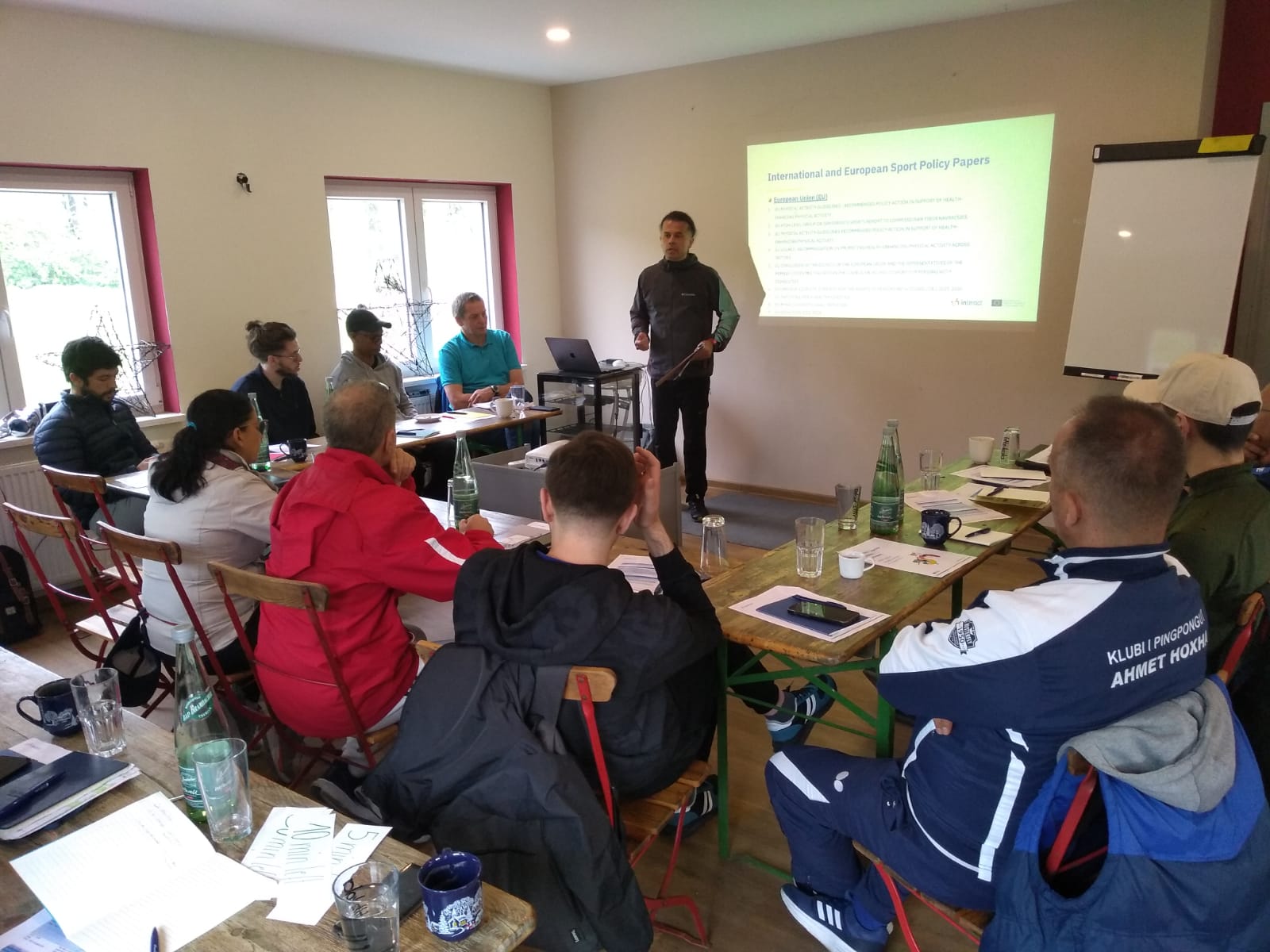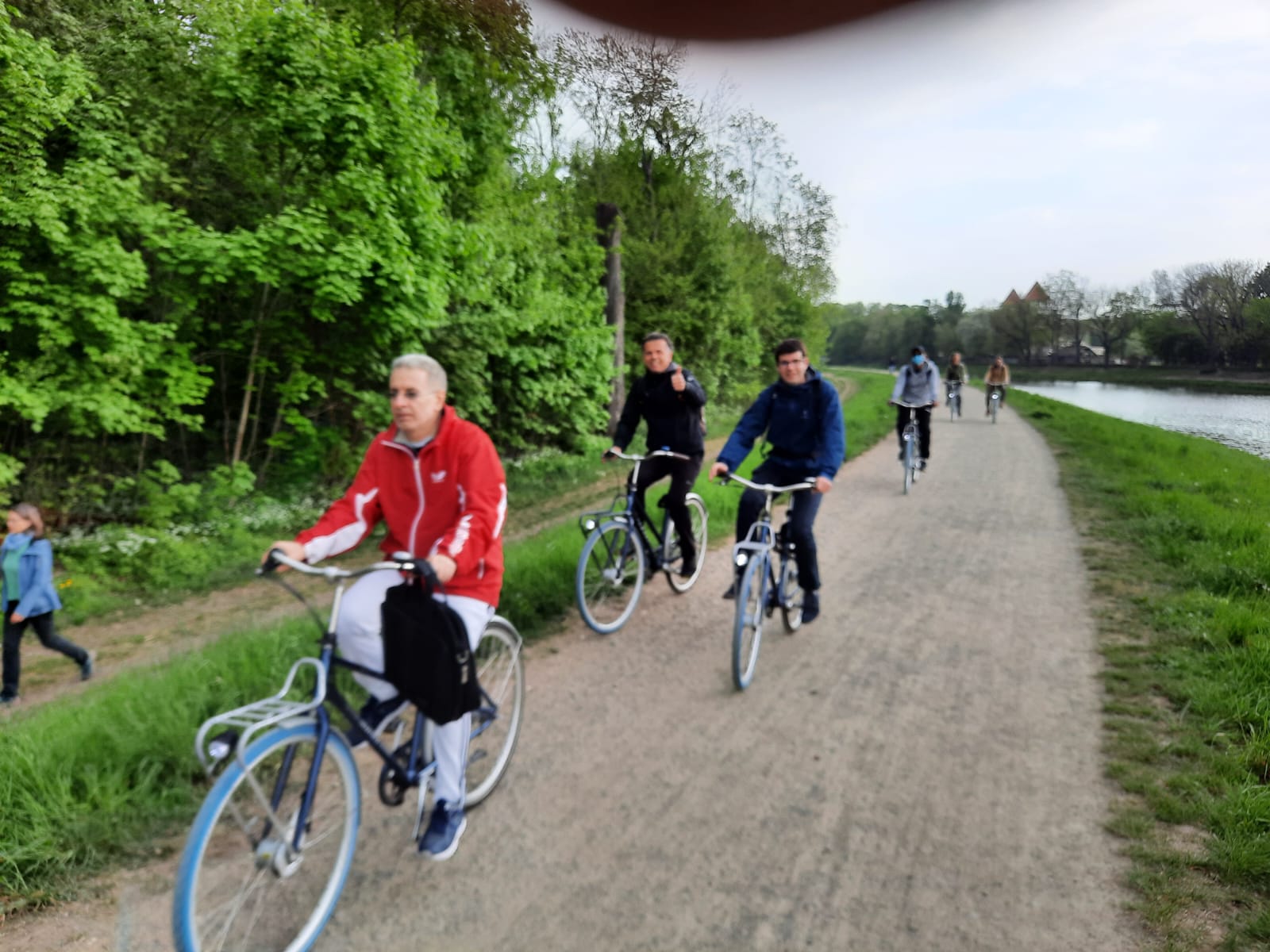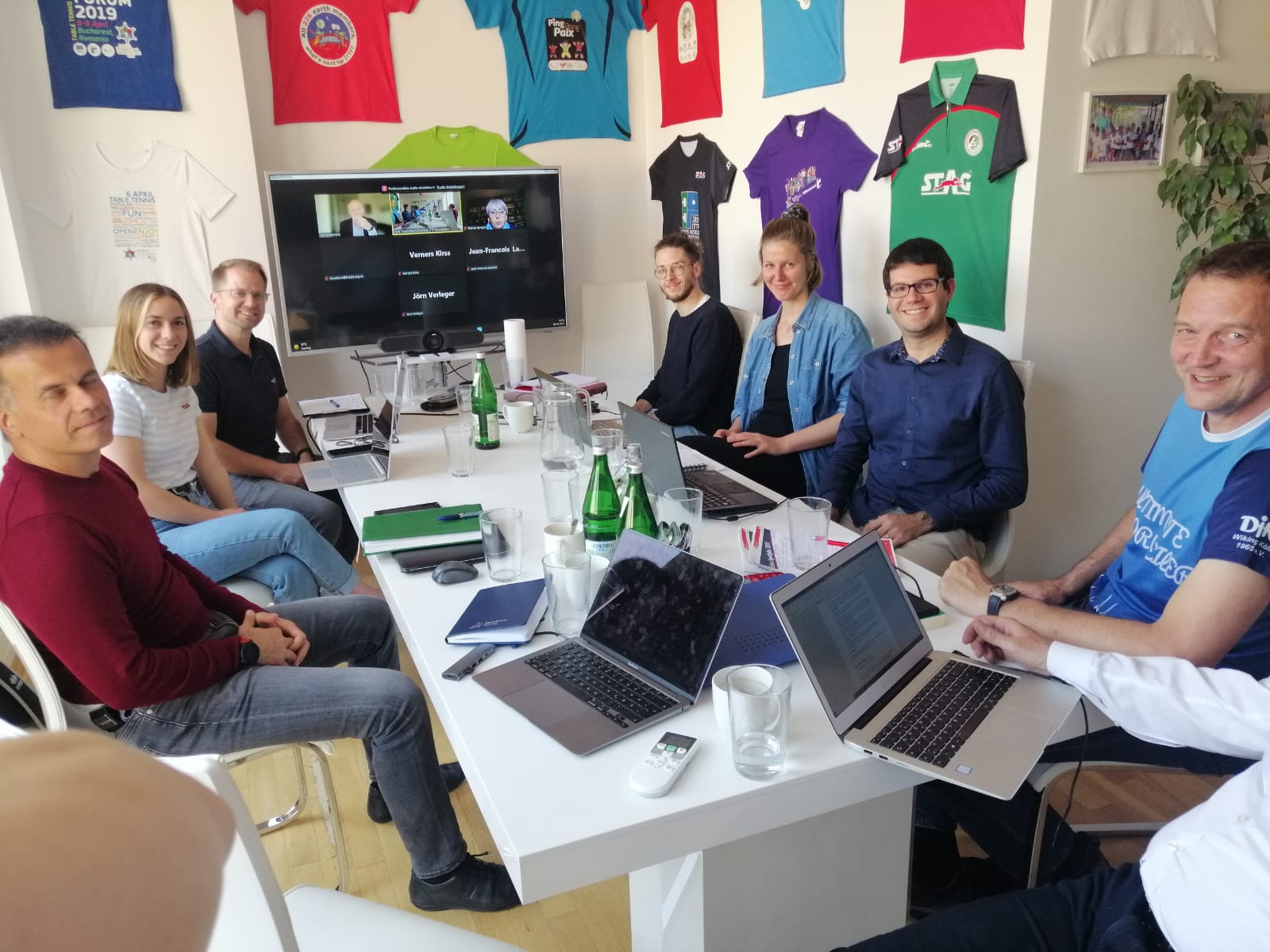Home > News > INTERACT Project Pilots Sport for All Capacity-building Framework

How can International and National Sport Organisations (ISOs & NSOs) promote and develop Sport for All, and create a better world? This is a central question that the INTERACT project – co-funded by the Erasmus+ Programme of the European Union, addresses and that is part of its capacity-building framework, which was piloted in Leipzig, Germany, on 4 – 5 May 2022.
During the 2-day training, the participants from Greenland, Kosovo, Malta, Georgia, Botswana, Venezuela and Portugal reflected on the meaning of Sport for All, its importance in society and contributions to the UN Sustainable Development Goals. They gathered insights on what role they, as NSOs, can play in Sport for All development and promotion. They shared good practices, knowledge and experiences on how to raise the interest of, and engage inactive people and disadvantaged groups to participate in Sport for All. Sport for all policy, strategy, practices, target groups, purposes, venues and types of initiatives were discussed. Together, they took notice, responsibility and initiated to take action to create a better world.

The pilot training was well received by all participants. Henrik Ottosen, from the Greenland Table Tennis Federation, confirmed that they will “take inspiration from the training, translate the key elements of the learning materials and present them to their Board of Directors for action”, while Jeton Beqiri, from the Kosovo Table Tennis Association, felt that the training was “very productive, with shared experiences and best practices for enabling all sport organisations to promote Sport for All. Multilateral angles brought by different countries were a useful interaction. I recommend all sport organisations to aim for Sport for All as part of their tasks and objectives”.

The training was led by TAFISA, the ITTF Foundation and the German Frisbee-sport Federation (DFV) with the support of all other INTERACT partners. It was the opportunity for the project team to unveil the first project outputs including its toolkit and good practices collection, which will be made available to the public in the coming months.
At the conclusion of the training, Jörg Benner (DFV), highlighted that “Sport for All must be inclusive. A Sport for All strategy is working out if there is a clear intention to include disadvantaged groups”, while Jean-Francois Laurent (TAFISA) underlined that “Sport for All can play a crucial role for a better world. We need sport to play its role in society and sport organisations must come out of their shell”. ITTF Foundation’s Wiebke Scheffler “thanked all participants for their inspirational and active involvement in the workshop. Our intention was not only to talk about Sport for All, but also to include physical activities for all participants wherever possible. We believe that we must lead by example and the training outcomes clearly proved the beneficial consequences of being active.”

INTERACT Online Test Group Workshop & INTERACT Partners Meeting
The pilot training was the opportunity for the INTERACT project to host two side events: an INTERACT project partners meeting on 3rd May – where partners moved forward with the development of the project’s outputs, and an online test group workshop on 4th May.
The test group workshop gathered representatives from the International Functional Fitness Federation, Fédération Internationale de Savate, International Sambo Federation, International Tchoukball Federation, World Dodgeball Federation, World Jiu Jitsu Confederation, Union Cycliste Internationale and International Teqball Federation. It was an opportunity for them to discover the beta versions of the INTERACT outputs and provide very useful feedback for improvement to the INTERACT Team.

TAFISA thanks the ITTF Foundation for hosting the various events in Leipzig, the INTERACT project partners for their hard work, the INTERACT Test Group members for their on-going commitment and support to the project, and the various National Table Tennis Federations that took part in the training.
Stay tuned as the various INTERACT outputs will be published in the coming months!